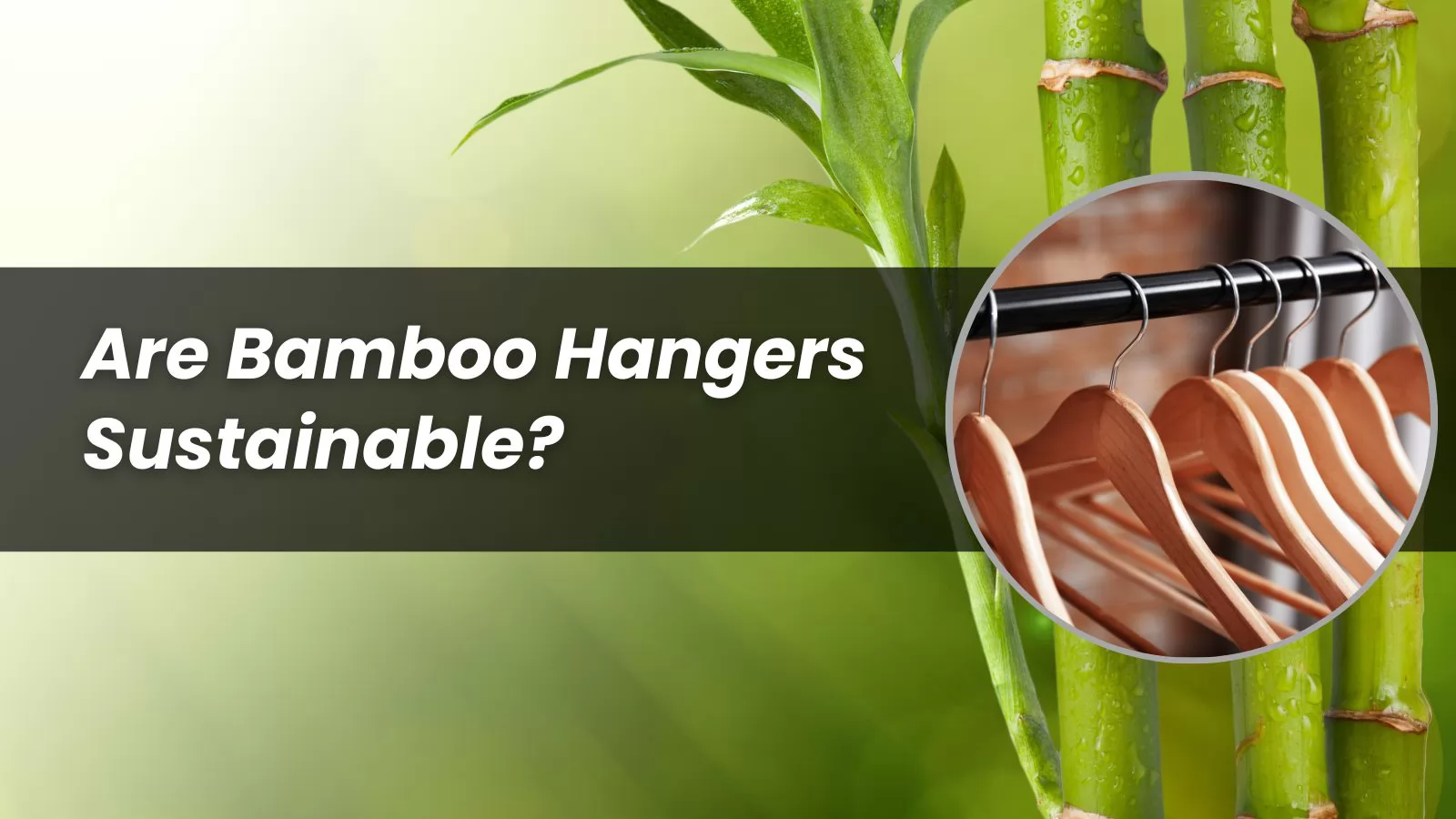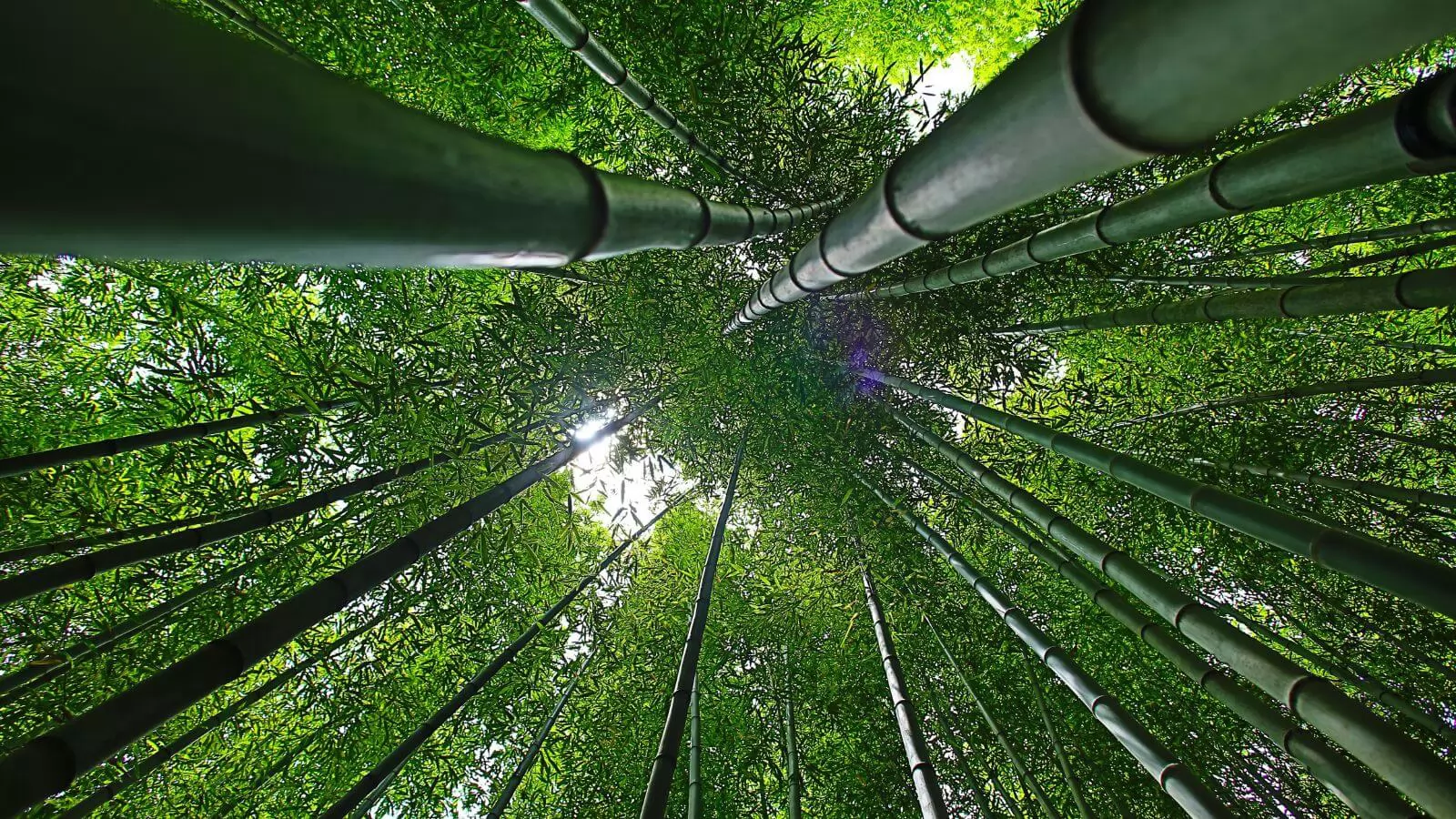


Bamboo, known for its rapid growth and remarkable versatility, has garnered significant attention in recent years due to its sustainable nature. This has led to a surge in the popularity of bamboo-based products across various industries. One such product is the bamboo hanger, which is often marketed as an eco-friendly alternative to traditional plastic or wooden hangers. But does the use of bamboo truly make these hangers a more environmentally friendly choice? Let's delve deeper into the environmental impact of bamboo hangers to determine their true sustainability.
● Sustainability Advantages of Bamboo
● The production process of bamboo hangers
● Comparison between bamboo hangers and hangers made of other materials
● Are bamboo hangers sustainable?
Bamboo hangers have gained significant popularity in recent years due to their eco-friendly credentials. Crafted from a rapidly renewable resource, bamboo offers a compelling alternative to plastic and traditional wooden hangers.
Sustainability: Bamboo is one of the fastest-growing plants on Earth, making it a highly sustainable material. It requires minimal resources to cultivate and grows without the use of pesticides or fertilizers.
Durability: Despite its lightweight nature, bamboo is surprisingly strong and durable. When properly cared for, bamboo hangers can last for many years.
Aesthetics: Bamboo hangers often boast a natural, elegant look that complements various interior styles. Their smooth finish prevents clothes from snagging or slipping.
Hypoallergenic: Bamboo is naturally hypoallergenic, making it a suitable choice for individuals with sensitive skin.

Bamboo, renowned for its unparalleled growth rate, rapidly transforms into dense, mature forests within a mere few years. This exceptional characteristic ensures a consistent and replenishable supply of raw material, making it a prime candidate for sustainable production. When harvested responsibly, bamboo forests can thrive without ecological compromise, establishing bamboo as a truly renewable resource. Moreover, bamboo's exceptional ability to sequester carbon dioxide positions it as a crucial tool in mitigating climate change. Its robust structure, akin to that of many hardwoods, combined with its inherent flexibility, renders bamboo an ideal material for crafting enduring and resilient hangers.

The cultivation and processing of bamboo involve a relatively low environmental impact due to the plant's rapid growth cycle, which minimizes the ecological consequences of harvesting. Nevertheless, the industrial processes transforming bamboo into usable materials can generate wastewater and waste gases, necessitating stringent environmental controls to mitigate their potential harm to ecosystems.
To enhance their durability and aesthetic appeal, bamboo hangers often undergo surface treatments such as painting or waxing. While these processes contribute to the product's longevity, they may involve the application of chemical substances. The use of these chemicals can potentially introduce environmental contaminants, underscoring the importance of eco-friendly finishing options in the hanger manufacturing process.

|
Material |
Advantages |
Disadvantages |
|---|---|---|
|
Bamboo |
Renewable,fast growing,high strength, good toughness |
The processing may cause pollution |
|
Plastic Low cost |
easy to shape Non-renewable |
Pollutes the environment |
|
Metal Durable |
not easy to deform |
High energy consumption in the production process |
Overall, bamboo hangers present a more sustainable alternative to their plastic counterparts. However, to fully realize their environmental potential, several key areas require improvement. Prioritizing the sourcing of bamboo from sustainably managed forests, as certified by organizations like the Forest Stewardship Council (FSC), is essential. Additionally, adopting eco-friendly manufacturing processes that minimize chemical usage and prioritize water-based finishes is crucial. To maximize resource efficiency, extending the lifespan of bamboo hangers through robust design and proper care is imperative. Lastly, innovative approaches to recycling bamboo hangers must be developed to create a truly circular economy for this promising material.

While bamboo hangers offer a more eco-conscious alternative to traditional plastic options, their overall environmental impact hinges on the sustainability of their production process from cultivation to disposal. Consumers play a critical role in promoting sustainable practices by selecting products from suppliers committed to ethical and environmentally responsible sourcing. Proper care and maintenance can also extend the lifespan of bamboo hangers, reducing waste and maximizing their environmental benefits. Although bamboo hangers represent a positive stride towards sustainable fashion, there is still significant potential for industry-wide improvements in areas such as waste reduction, energy efficiency, and the development of closed-loop production systems.
If you need a reliable hanger manufacturer, then it is recommended to contact Eisho. Eisho is a professional manufacturer and exporter of designing and manufacturing hanger products.







